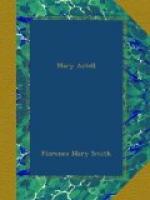|
This section contains 3,952 words (approx. 14 pages at 300 words per page) |

|
SOURCE: Thickstun, Margaret Olofson. “‘This was a Woman that taught’: Feminist Scriptural Exegesis in the Seventeenth Century.” In Studies in Eighteenth Century Culture, Volume 21, edited by Patricia B. Craddock and Carla H. Hay, pp. 149-58. East Lansing, Mich.: Colleagues Press, 1991.
In following essay, Thickstun discusses Astell's writings on scripture and other religious matters, including her beliefs about the appropriate role for women in these areas.
In reading contemporary criticism of seventeenth-century women writers, I have noticed that critics tend either to ignore or to misunderstand the feminist implications of women's claim to religious authority as interpreters of Scripture. It seems to me that contemporary scholarship, operating as it does in a secular culture, is not sufficiently aware of the revolutionary nature of a woman's claim to religious authority. I would like to correct this misapprehension by discussing two women writers of the late seventeenth century who attempted a...
|
This section contains 3,952 words (approx. 14 pages at 300 words per page) |

|


